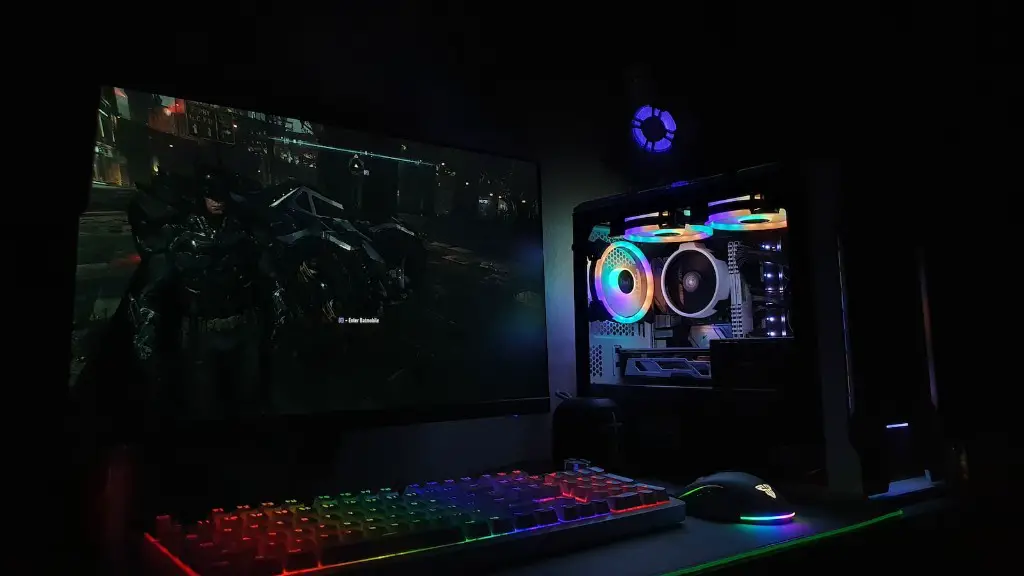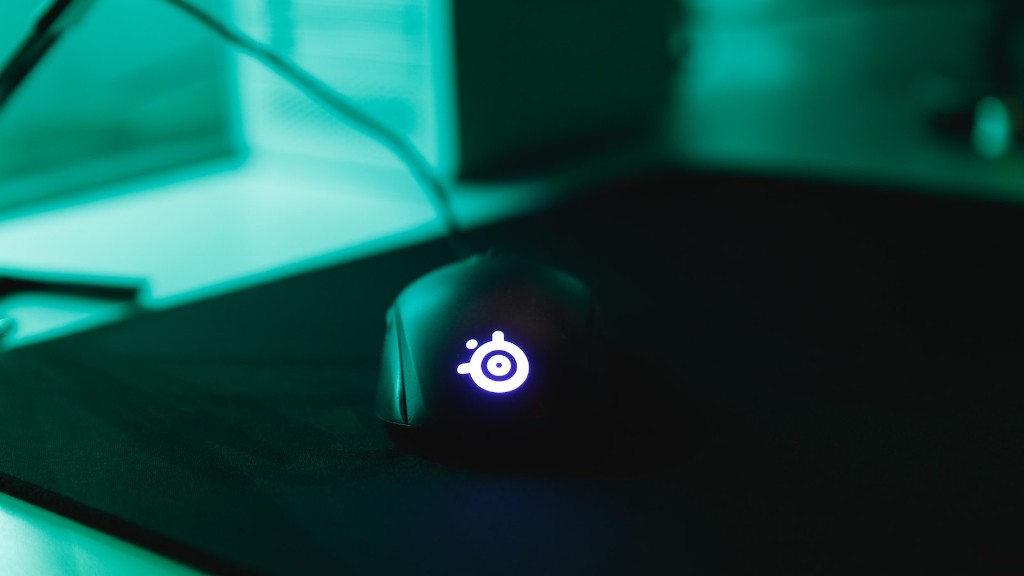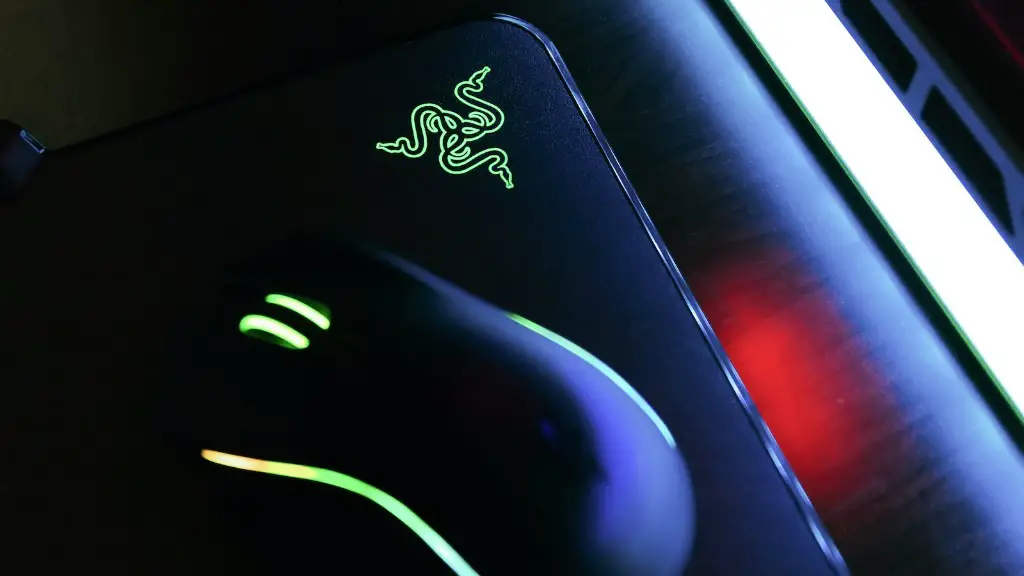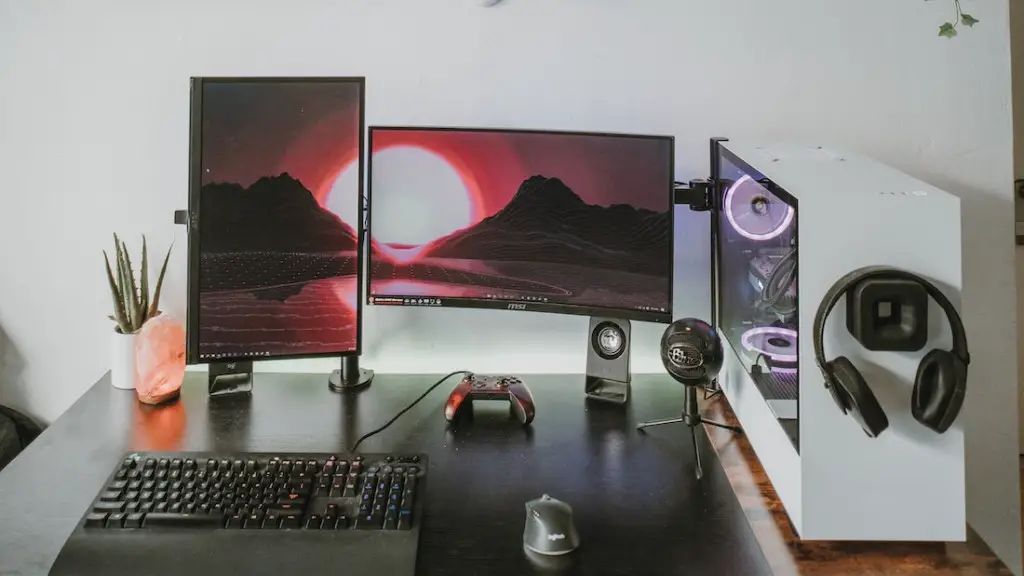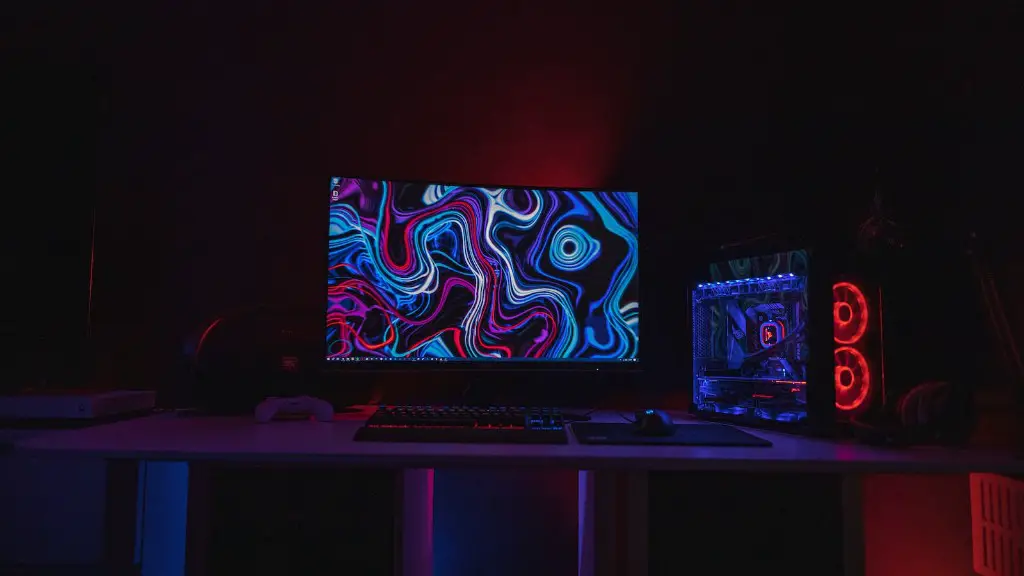Most gamers have experienced the issue of their gaming PC slowing down – it can be highly frustrating. There can be several causes for this, ranging from memory issues to poor cooling systems or inadequate hardware and software. To help you understand why your gaming PC is slowing down, here is an in-depth look at the potential culprits and some strategies for how to fix the problem.
Hardware Problems
One of the most significant reasons for a gaming PC to slow down is hardware issues. Your CPU or GPU may no longer meet the demands of the latest games or lack the ability to multi-task. To help ensure your gaming PC runs smoothly and quickly it is important to make sure it is always up-to-date. Updating your drivers is also important to keeping your PC running at its best.
Another hardware issue is overheating. Gaming PCs can get very hot, which can cause components to malfunction or even cause the PC to shutdown. Inadequate cooling systems may be the cause of this. Make sure your PC is properly cooled; invest in a good cooler and make sure your fans are working properly.
Finally, inadequate storage (hard drive space) may also cause your gaming PC to slow down. Make sure you clean up your hard drive and uninstall any unnecessary applications and games to make sure your gaming PC has enough space.
Software Issues
Aside from hardware issues, outdated or corrupted software can also be the cause of gaming PC slow-down. One of the most common culprits is corrupted drivers, which can lead to sluggishness. Always keep your PC drivers up-to-date to help ensure that your gaming PC runs efficiently.
Too many applications running at once can also be the cause of your gaming PC to slow down. If you discover too many applications running, try to close the ones you don’t need and make sure you only have the essential programs running. It is a good practice to regularly check your PC for any unnecessary running applications or services.
Outdated software is another issue; make sure all your software is regularly updated to the latest version. Finally, poor internet connection or slow download speeds can hinder the performance of your gaming PC; sometimes the games take too long to download or stream, which can cause the PC to slow down.
Virus and Malware
Viruses and malware are a major threat to gaming PCs, and can cause the machine to slow down considerably. Malware can sometimes be difficult to detect, so it is important to have proper antivirus and anti-malware software installed and regularly updated.
Furthermore, hacking attempts and malicious attacks are another serious threat that can be damaging to your gaming PC. Make sure you use strong passwords, use two-factor authentication, and keep all your software up-to-date to help protect your PC from malicious attacks.
Gaming Performance
Gameplay performance is essential when it comes to gaming, and a lack of performance can cause your gaming PC to slow down. Ensure the settings for your games are correctly set for your gaming PC; turn down the graphics settings, resolution and other settings if necessary to make sure your gaming PC is running optimally.
Memory usage can also affect gaming performance; make sure there is enough RAM available and that your gaming PC is not overworking to run games. If your gaming PC has inadequate memory, install or upgrade your memory to get better performance.
Additionally, background applications and programs can affect gaming performance. Make sure none of your applications and programs are running in the background while you are gaming; close all unnecessary background applications and programs to ensure you get the best gaming performance.
Graphics Settings
Graphics settings in games can also have an impact on the performance of your gaming PC. Make sure the graphics settings are set to something that your gaming PC can handle; too high settings can strain the CPU and GPU and cause your PC to slow down. Turn down the settings if necessary.
If you are running multiple games at once, make sure the graphics settings are adjusted for all the games. Turn down the graphics settings for any games or applications running in the background to avoid overworking your gaming PC.
At the same time, turn up the graphics settings for the games you are currently playing. This will help your gaming PC run games optimally and as a result, your gaming PC won’t slow down.
Power Settings
Your gaming PC’s power settings may also be another reason why it is slowing down. Make sure your PC is not set to power-saving mode; this is more suitable for laptops and can cause your PC to slow down significantly. Instead, make sure the power settings are set to performance mode.
In addition, overclocking is an advanced strategy used by gamers to get the best performance out of their gaming PCs. However, overclocking can be risky and might even cause your PC to slow down if done incorrectly. Be sure to read up on overclocking before attempting it and make sure your PC cooling system is properly set up.
Finally, a simple restart or shutdown of your gaming PC sometimes can be enough to speed up your PC. Consider restarting your PC on a regular basis to help optimise the performance of your gaming PC and avoid any slow-downs.
